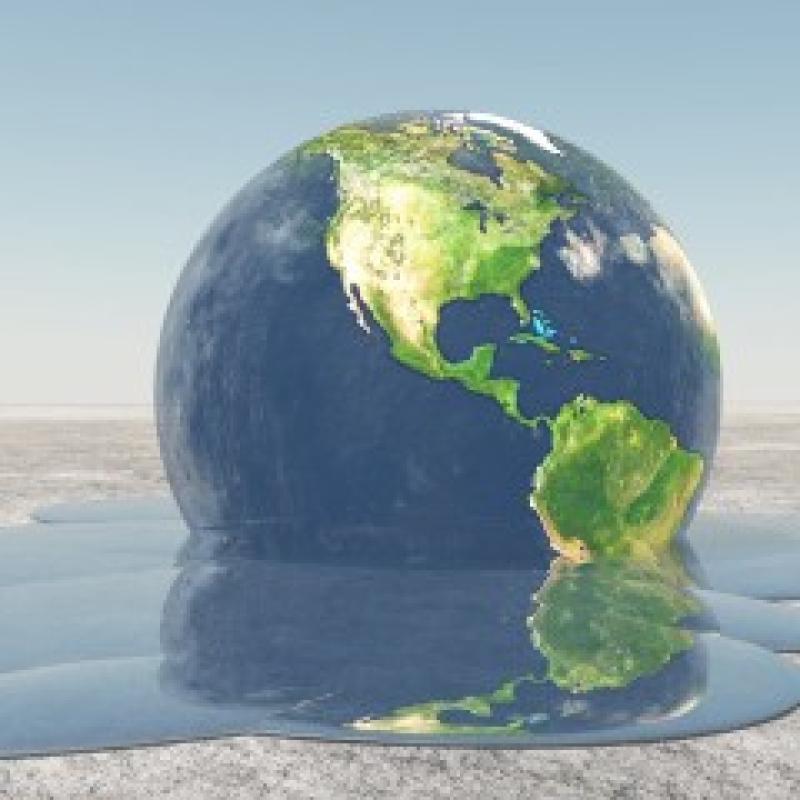From an outsider's perspective, the controversy surrounding climate change in the U.S. might seem justified. Both sides get to defend their perspectives on national television, and climate change deniers draw on tangible evidence like increased snowfall and previous warm periods to inform their stance. Some arguments even sound plausible -- but they're actually all wrong.
"Earth isn't warming, it's cooling."
Some rush to point out that media and meteorologists reported the winter of 2013-14 as being one of the coldest in 20 years in the U.S., and global temperatures have stopped rising since 2000.
However, while the acceleration of warming has slowed, the planet is still warmer than it should be, with 2013 ranking as the 37th consecutive year of above-average global temperatures. The 2013-2014 winter seemed especially cold because winters have been warming over the past 50 years. According to the National Oceanic and Atmospheric Administration's global analysis, nine of the 10 hottest years since record-keeping began in 1880 have occurred in the 21st century.
"Theres no scientific consensus."
The International Panel on Climate Change issues its reports with phrases such as "virtually certain" and "extremely likely" to describe the probability of an outcome or occurrence. Meanwhile, in the media, segments on climate change typically feature a skeptic debating a climate change scientist.
The media portrays both sides of the argument as having equal weight, but scientific bodies from the American Medical Association to the International Arctic Science Committee agree not only that climate change exists, but also that it's caused by humans. If skeptics still don't trust the abundance of evidence documenting the phenomenon, record high temperatures and unprecedented droughts and storms epitomize a changing planet.
"It's natural, not manmade."
Skeptics claim that Earth's temperatures fluctuate over time, and we're just in a warming period.
While it's true that the planet warms and cools, its also true that more than 97 percent of scientific papers published between 1991 and 2011 agreed with the consensus that humans are the cause of climate change, according to a Skeptical Science survey. Natural causes alone can't account for the steep rise in warming since the mid-20th century, but our greenhouse gas emissions can. The planet surpassed the atmospheric carbon dioxide safe limit, 350 parts per million (ppm), in 1988. Were now at more than 400 ppm for the first time in millions of years according to data from the Scripps CO2 Program.
"It won't affect us any time soon."
Some do not deny climate change outright, they merely claim that if it does exist, the effects will be minimal and far off in the future.
Climate change is wreaking havoc now. Over the past 35 years, the number of Category 4 and 5 storms (looking at you, Superstorm Sandy) have increased, according to NASA. The pollen season in the U.S. now lasts up to 16 days longer than it did 20 years ago, thanks to carbon dioxides multiplicative effect on plants. By 2050, Earth will have to sustain nine billion people with higher risks of water shortages and some of the driest soil conditions in modern times, as reported by the National Resource Defense Council.
"Addressing it would be bad for business."
President Barack Obama 's new plan to limit carbon dioxide emissions from power plants won't do anything except "destroy our economy," as Sen. Marco Rubio (R-Florida) told ABCs "This Week" in May.
After hesitating to enact legislation, the administration is finally putting theory into practice. In 2013, the USDA pledged to subsidize energy efficiency improvements for rural businesses and consumers, and in the first quarter of 2014, the U.S. added 5,600 clean energy and transportation jobs, according to a report by Environmental Entrepreneurs. Analysis by the National Resources Defense Council shows cutting carbon emissions would produce a net total of 210,000 jobs at existing power plants and in alternative energy sectors.
"It's a liberal, anti-capitalist hoax."
Fundamentally, the climate change denier's arguments embody fears about losing control of profits. In 2003, Sen. James Inhofe (R-Oklahoma), then chairman of the Committee on Environment and Public Works, told the Senate that environmental groups and "other extremists...don't like capitalism, free markets, and freedom," and seek "money and power." Rep. Paul Broun (R-Georgia) called climate change "one of the greatest hoaxes perpetrated out of the scientific community" while debating a bill in 2009.
The people who suffer most from climate change -- the poor -- are not the people who benefit from free markets and the excessive carbon production that fuels them. Global warming skeptics reject climate change because their oil-reliant ways of life would have to change. Climate change isn't the invention of a political party. The consensus is international, the science is real, and the change is here.
Which claim refuting climate change is more ridiculous: doing something would destroy the economy or it's just a liberal hoax? Leave a comment.
UNQUOTE





